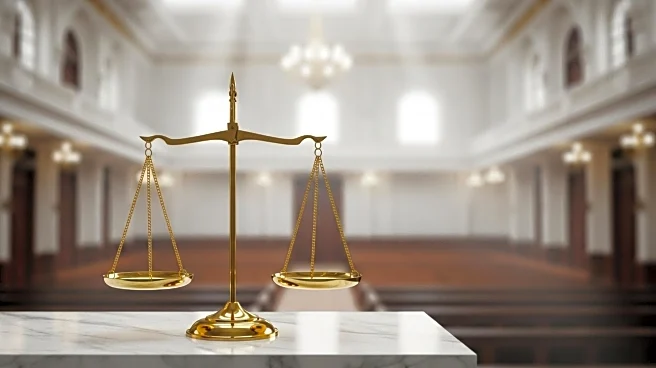What's Happening?
The Supreme Court has commenced its new term as the U.S. government shutdown enters its sixth day. The shutdown has resulted from a budget impasse, affecting various federal operations. Meanwhile, the Supreme Court is set to hear several significant cases, including those related to voting rights and environmental regulations. The timing of these cases coincides with ongoing political tensions, as lawmakers struggle to reach a consensus on budgetary allocations. The shutdown has led to furloughs and reduced services across multiple government agencies, impacting millions of Americans.
Why It's Important?
The government shutdown has significant implications for federal employees and services, potentially disrupting economic activities and public services. The Supreme Court's new term could influence key legal precedents, particularly in areas like voting rights, which are crucial amid ongoing debates about election integrity. The intersection of these events highlights the broader political and legal challenges facing the U.S., with potential long-term impacts on governance and public policy. Stakeholders, including political leaders and civil society groups, are closely monitoring these developments.
What's Next?
As the Supreme Court hears pivotal cases, the government shutdown remains unresolved, with negotiations continuing among lawmakers. The outcomes of the court's decisions could shape future legislative actions, particularly in areas like environmental policy and electoral laws. The shutdown's resolution is uncertain, with potential compromises or further political standoffs likely. The situation demands attention from both political leaders and the public, as the consequences of prolonged government inactivity could be severe.
Beyond the Headlines
The ongoing government shutdown and Supreme Court cases underscore deeper issues within U.S. political and legal systems. The shutdown reflects broader partisan divides, while the court's decisions may influence societal norms and legal interpretations. These events could lead to shifts in public trust and engagement with governmental institutions, highlighting the need for effective governance and judicial oversight.










